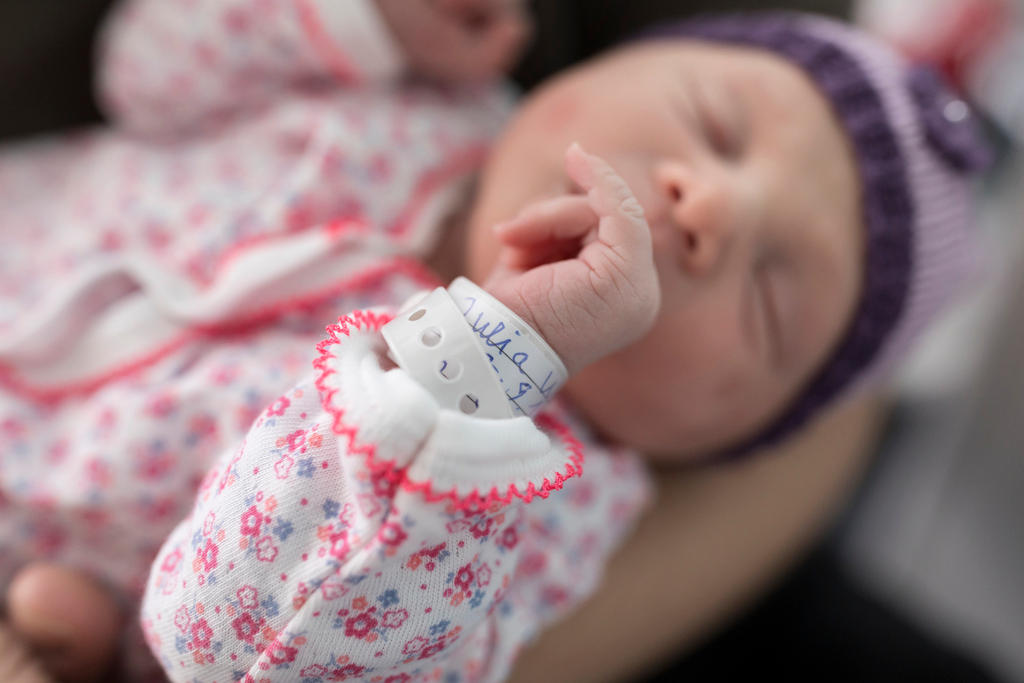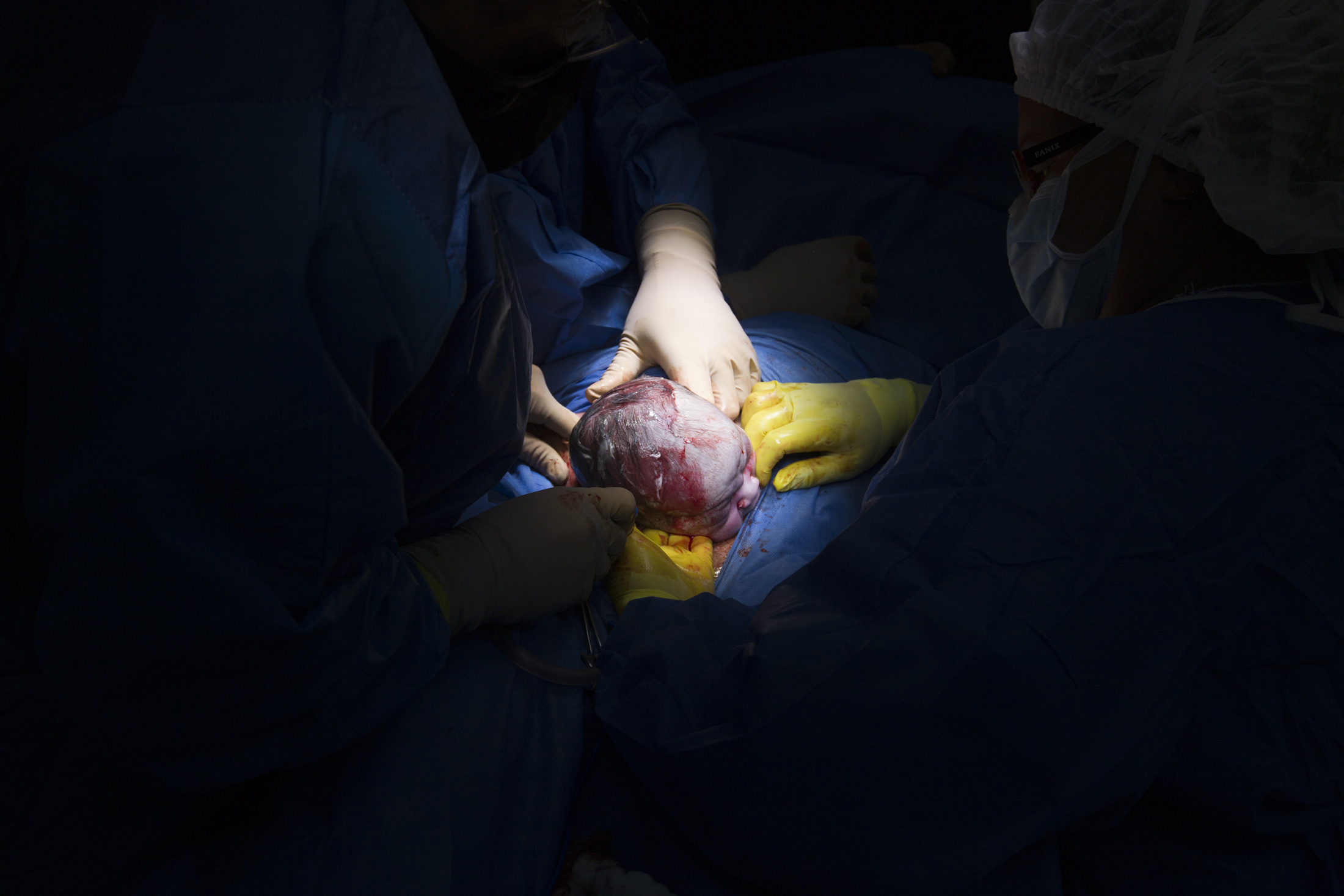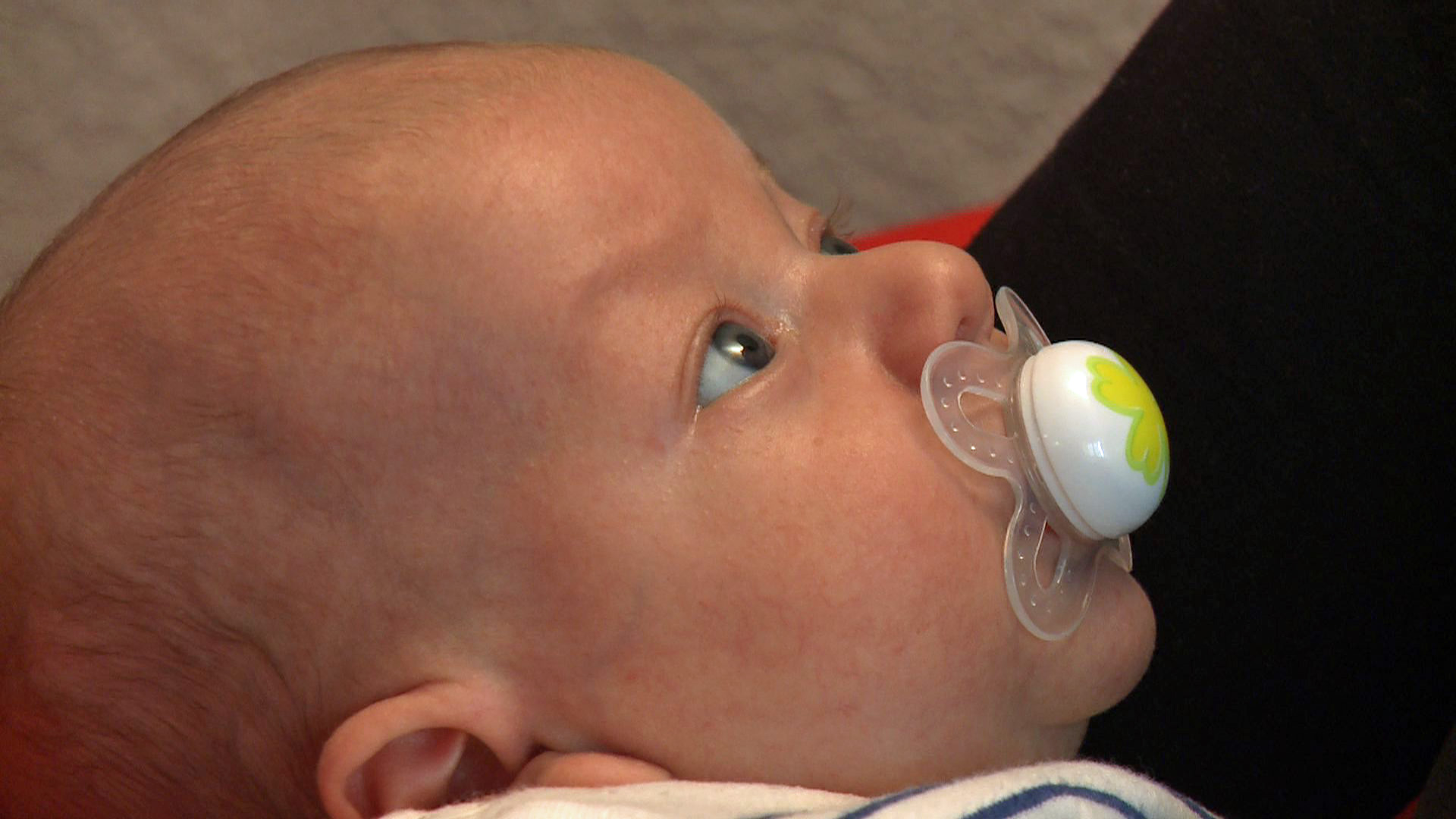Women’s childbearing stress cut by video game

A pilot study found that the brief use of a computer game helped women develop fewer intrusive memories and less severe post-traumatic stress symptoms after an emergency cesarean section.
Researchers at Lausanne University Hospital (CHUVExternal link) used the computer game Tetris to examine how the effects of a C-section operation could be alleviated. Women were instructed to play Tetris for 15 minutes during the first six hours after the operation. Follow-up exams came a week and month later.
Antje Horsch, a British-trained clinical psychologist who heads a research teamExternal link at CHUV, hypothesised that mothers might have fewer flashbacks or nightmares after a traumatic delivery if their minds were briefly occupied by a demanding visual-spatial game during the immediate recovery time.
“This represents a first step in the development of an early (and potentially universal) intervention to prevent postnatal post-traumatic stress symptoms that may benefit both mother and child,” the lead author Horsch and eight co-authors wrote in a paper published onlineExternal link in April in the journal Behaviour Research and TherapyExternal link. The Swiss researchers collaborated with Swedish and British teams.
Cognitive disruption
Each year, almost 1-in-5 women on average give birth through an emergency C-section around the world. In SwitzerlandExternal link, the rate is about 1-in-3 women, on par with the United States. A few countries, such as Brazil, China and Iran have rates of about 1-in-2 women.
The researchers say that even after healthy births about a third of the mothers develop post-traumatic stress disorder during the month afterward because they or their babies underwent a real-life threat. Those experiences make it more difficult for mothers, their partners and newborn children to adjust.
Horsch says the study shows that the cognitive tasks of an entertaining computer game can disrupt the process of forming memories by preventing them from “consolidating” in the first place.
Broader implications
The study involved 56 mothers who underwent an emergency cesarean section. Half were given the usual care and could play Tetris, while the other half received only the usual care.
Tetris was chosen in part because it did not hinder usual care. The game involves scoring points by putting cubic shapes in the right place as they fall, so that they fill a horizontal row. It does not involve any specific language.
Horsch also has received a grant from the Swiss National Science FoundationExternal link to conduct a more in-depth study of the long-term benefits of computer games on the mother-child relationship, but believes the technique also could be used to deal with other traumas such as post-cardiac surgery.

In compliance with the JTI standards
More: SWI swissinfo.ch certified by the Journalism Trust Initiative



You can find an overview of ongoing debates with our journalists here. Please join us!
If you want to start a conversation about a topic raised in this article or want to report factual errors, email us at english@swissinfo.ch.